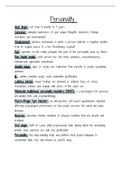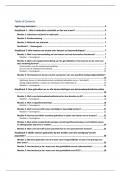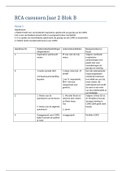Annie Welbourne 28.06.2024 Mr Lowndes - Sanderson
EU – European Union
Key events.
Key themes and aims (Four Freedoms).
Key institutions.
Impact on the UK.
Structure and aims.
- The European Union is a political and economic union of 28 states that
arose out of the establishment of the European Coal and Steel Community
established by 6 nations in 1950.
- Developed into the European Economic Community in 1957.
- European Union introduced in 1973.
- European Union was established by the Treaty of Maastricht in 1991.
- 23rd June 2016, British individuals voted to leave the EU in a referendum
by a margin of 52% - 48%.
- UK will become the first member state to leave the EU.
- Article 50, notified the UK’s wish to withdraw, was triggered by Theresa
May in March 2017 following a vote in Parliament to approve the
triggering.
- UK has two years to negotiate the terms of its withdrawal before it ceases
to become a member in March 2019.
History of the EU.
- Began as a coal and steel pact between six countries in 1980. France and
Germany wanted to pool control of those industries that were needed for
waging war as a means of promoting peace.
having been on two opposing sides in the World Wars.
- The 1957 Treaty of Rome made it a trading bloc (customs union) known as
the European Economic Community or common market.
The UK joined the European Economic Community (EEC) in 1972.
- In 1986, the EEC became the ‘single market’ with a single set of rules and
four freedoms.
- The 1992 Maastricht Treaty committed most member states to formal
political and monetary union with the single currency; the Euro.
Within the single market, the EU has set out common policies on worker rights
and other social policies (like environmental standards), thus creating a level
playing field for businesses and workers.
Britain opted out of the monetary union – signed the master treaty, but didn’t
join the Euro
- The 2007 Lisbon Treaty furthered the political union by giving the
European Council and a permanent president and the Eu a foreign policy
minister.
What policy areas does the EU control?
- The EU has an exclusive competence over trade with non-EU states,
customs and tariffs and competition policy.
- The EU has some control over immigration, agriculture, regional
development, social and development policy and parts of foreign and
security policy.
- Other policy areas: taxation, national defence, education, health and social
security are controlled by member states.
Six nations within politics
, Annie Welbourne 28.06.2024 Mr Lowndes - Sanderson
- Belgium
- Netherlands
- Luxemburg
- Italy
- France
- West Germany.
EU – European Union
Key events.
Key themes and aims (Four Freedoms).
Key institutions.
Impact on the UK.
Structure and aims.
- The European Union is a political and economic union of 28 states that
arose out of the establishment of the European Coal and Steel Community
established by 6 nations in 1950.
- Developed into the European Economic Community in 1957.
- European Union introduced in 1973.
- European Union was established by the Treaty of Maastricht in 1991.
- 23rd June 2016, British individuals voted to leave the EU in a referendum
by a margin of 52% - 48%.
- UK will become the first member state to leave the EU.
- Article 50, notified the UK’s wish to withdraw, was triggered by Theresa
May in March 2017 following a vote in Parliament to approve the
triggering.
- UK has two years to negotiate the terms of its withdrawal before it ceases
to become a member in March 2019.
History of the EU.
- Began as a coal and steel pact between six countries in 1980. France and
Germany wanted to pool control of those industries that were needed for
waging war as a means of promoting peace.
having been on two opposing sides in the World Wars.
- The 1957 Treaty of Rome made it a trading bloc (customs union) known as
the European Economic Community or common market.
The UK joined the European Economic Community (EEC) in 1972.
- In 1986, the EEC became the ‘single market’ with a single set of rules and
four freedoms.
- The 1992 Maastricht Treaty committed most member states to formal
political and monetary union with the single currency; the Euro.
Within the single market, the EU has set out common policies on worker rights
and other social policies (like environmental standards), thus creating a level
playing field for businesses and workers.
Britain opted out of the monetary union – signed the master treaty, but didn’t
join the Euro
- The 2007 Lisbon Treaty furthered the political union by giving the
European Council and a permanent president and the Eu a foreign policy
minister.
What policy areas does the EU control?
- The EU has an exclusive competence over trade with non-EU states,
customs and tariffs and competition policy.
- The EU has some control over immigration, agriculture, regional
development, social and development policy and parts of foreign and
security policy.
- Other policy areas: taxation, national defence, education, health and social
security are controlled by member states.
Six nations within politics
, Annie Welbourne 28.06.2024 Mr Lowndes - Sanderson
- Belgium
- Netherlands
- Luxemburg
- Italy
- France
- West Germany.










